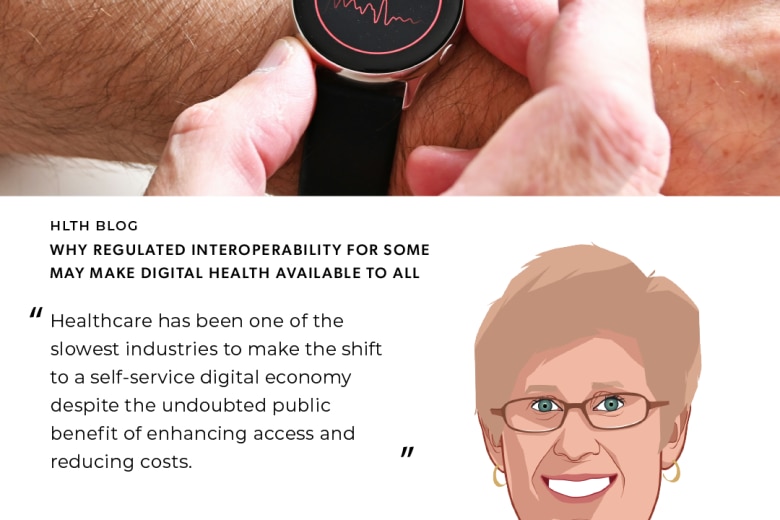In my many years as a member of the developer community, I’ve witnessed firsthand how barriers to accessing and sharing data can thwart innovation. Working with startups and major enterprises in MedTech, I saw how locked-down data hinders the kind of collaboration we’ve all come to realize is essential for providing high-quality care.
As I’ve learned about the Fast Healthcare Interoperability Resources (FHIR®) standard, I’ve come to believe it’s a way forward with innovation in healthcare I hope developers worldwide — including the 11,000 developers in our global InterSystems developer community — are excited to learn about how to use FHIR to power data-driven healthcare solutions, facilitating collaboration among ecosystem stakeholders like never before.
Half of healthcare executives say data integration and interoperability is the biggest impediment to achieving their strategic data analytics goals, a Sage Growth Partners survey found. Only 20% of them have full confidence in their data.
They’re eager for change. About 80% of those executives say creating and sharing high-quality data across their organization is a top priority. A global movement is calling for more collaborative care, yet these kinds of data shortcomings stand in the way.
FHIR integration can be a game-changer.
Collaborative Care Means Collaborative IT
There’s no question that bringing together healthcare stakeholders to exchange information and knowledge will lead to improved outcomes for patients. But what do you find when you look under the hood of successful collaborative care?
Collaborative IT. That means achieving interoperability of health information, whether it’s test results, report patient monitoring data, claims information, or the electronic health record (EHR). With healthcare data more voluminous and widely dispersed than ever, accessing data from multiple systems, in real time from one application, empowers stakeholders to home in on the details and quickly build a customized care plan.
FHIR is the Future of Healthcare Interoperability
Some quick background: FHIR is a global interoperability standard that describes how organizations can share roughly 150 healthcare “resources” — such as medications, medical device data, payer information, and other data hosted across EHRs and other systems.
As of last year, health plans must allow members to access their healthcare data via applications using the secure FHIR Release 4 (R4) API. That has enabled an explosion of innovation from developers around the world, enabling them to build FHIR applications, tools, and technologies that leverage this standard to facilitate collaborative care.
It’s a boon to patients. Now they can access personal health information with the swipe of a finger, using FHIR-based application programming interfaces (APIs) to pull up health data from their mobile devices.
Using FHIR to Transform Care
As head of developer relations at InterSystems, I’m proud that we’re building core healthcare IT collaboration tools that help developers take full advantage of FHIR. InterSystems IRIS for Health, InterSystems HealthShare®, and InterSystems IRIS cloud services all leverage FHIR to support interoperability.
The HL7 Da Vinci Project is an initiative through which health IT experts and industry leaders work to improve data sharing across communities in value-based care arrangements by leveraging HL7 FHIR. The project focuses on making gains in quality improvement, coverage/burden reduction, member access, process improvement, and clinical data exchange.
Looking at what’s in the pipeline and already on the market, it’s clear that FHIR integration will transform healthcare. When providers, payers and others in the care community can harness sprawling health data to improve outcomes for patients, everyone wins.
The world’s largest FHIR-only event is live now. On June 6-9, more than 500 thought leaders and members of the global developer community will converge in Cleveland for FHIR DevDays, exploring new ways to capitalize on this revolutionary technology. I hope to see you there.
To find out more about InterSystems and our commitment to FHIR,
visit this page.
Click here to learn more about DevDays.







































